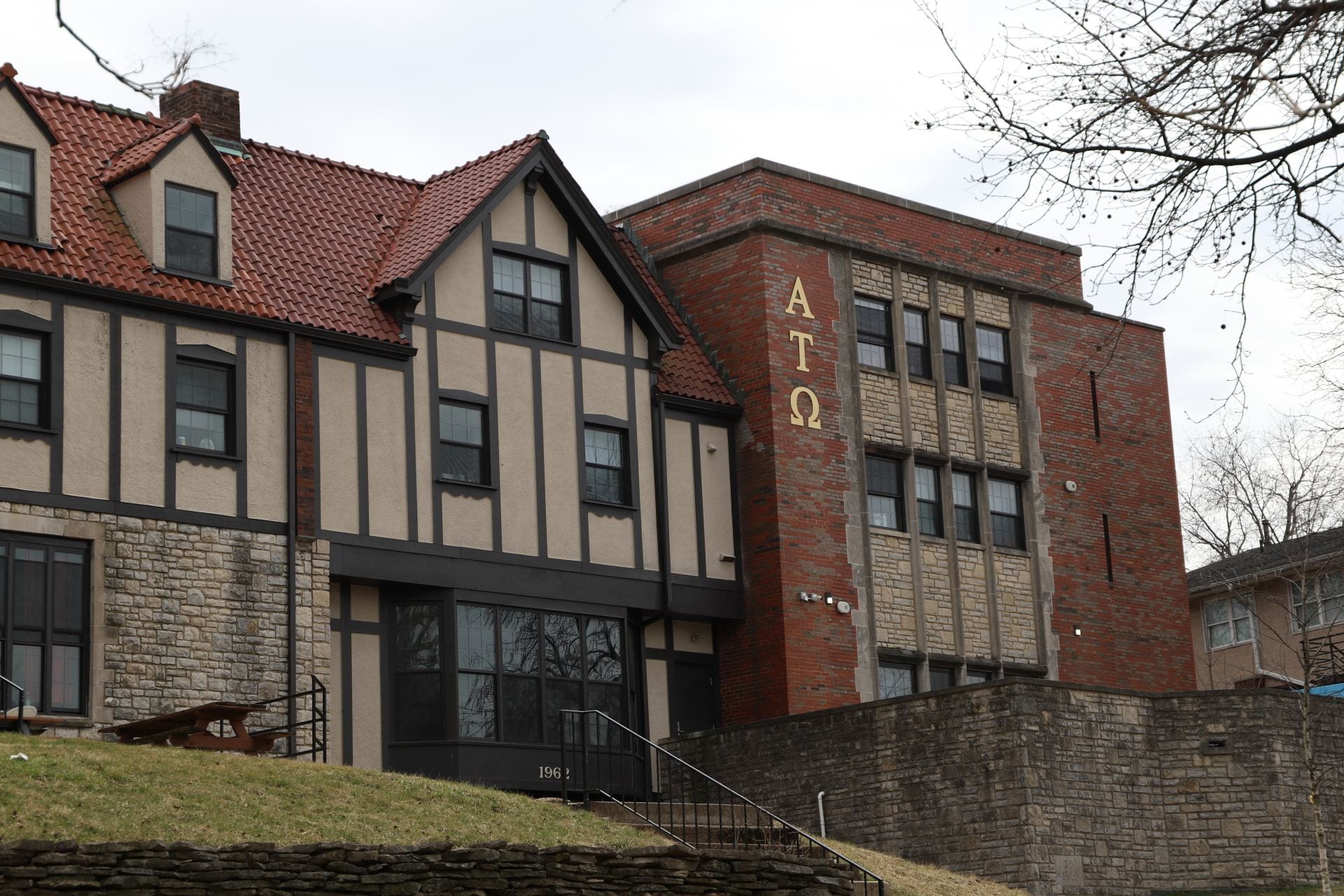
Bruno Martin is a familiar face to many on- and off-campus residents — and yet, his identity is largely unknown. Credit: Christian Harsa | Asst. Photo Editor
Bruno Martin is a familiar face to many on- and off-campus residents — and yet, his identity is largely unknown.
Although he stands at the corner of High Street and Lane Avenue most afternoons selling acrylic paintings of nature and other subjects, Martin, a graduate student pursuing a master’s in business administration at Franklin University, doesn’t necessarily consider himself to be an artist.
“I wouldn’t go as far as calling myself an artist. It was meant to be something like a side hustle, but it’s turned into this,” Martin said.
About eight months ago, Martin was homeless. An international student from Honduras, his student visa prohibits him from easily obtaining a job in the United States.
“I used to have a job, but in that job, I was being mistreated and everything, so I personally just started because I ended up going broke to the point of being homeless,” Martin said.
In July 2020, he said he started selling a friend’s paintings in an attempt to earn some money — splitting the profits between the two of them. After a period of time, Martin said he realized that he could paint on his own.
“I didn’t want to barge into her work, so I stayed on the side, but then I thought, ‘I know how to do certain things,’” Martin said. “I did a couple, and they sold, so I said, ‘OK, I’m going to build something.’”
Selling art has been more than a small business for Martin. He said the experience has impacted his personal life as much as it’s provided for him financially. Many of the people Martin has met at his corner of campus have left a positive impact on him, he said.
“I’m Black, so I didn’t know if the cops were going to be like, ‘Hey, you need to leave,’ but they were really amiable to the point that one of them even stopped and bought a painting,” Martin said.
His customers have ranged from cops to students to athletes, including Ohio State then-junior quarterback Justin Fields.
“He drove by and said, ‘Hey, come over, and bring your stuff,’” Martin said. “He ended up buying a palm tree on a beach.”
His work has also led him to create lifelong friends, including a group that invited him to a worship night and some Ohio State staff.
“He loves to sit down and talk to people about how he was feeling while he painted something and why he painted it,” Levi Lynch, a facilities maintenance technician for the Office of Student Life and a friend of Martin’s, said. “He tells me almost every day about the experiences he has with people.”
Although Martin has received kindness from many of the people he’s met, he said he has also faced great challenges selling art on the street, especially as a Black man.
“Sometimes, when I stand, people think I’m homeless or begging for money,” Martin said. “I’ve had instances in which Black women came to me and said, ‘Don’t be using the money to get high.’”
Even though Martin interacts with people from all walks of life every day he sells art, he said he’s not necessarily motivated by what some view as an ability to impact others — he said his mindset of showing up and trying his best is what keeps him focused and motivated to continue his work.
But Lynch said in the months he has known him, Martin has changed his life.
“He’s definitely encouraged me to be more personable and considerate of others,” Lynch said. “He’s kind of just encouraged me to step up my game and be a better person.”
Martin does not just paint aesthetically; many of the motifs in his art reflect his origins and beliefs. He has painted sunsets to showcase his Honduran origins and he said he painted one poignant image to make a statement about human trafficking.
“I recently did a painting of woman who doesn’t have a particular race or anything because I wanted to raise awareness about human trafficking,” Martin said.
Martin has even painted by commission. Lynch said he asked Martin to recreate a photograph of his then-girlfriend — now fiancée — at a park as an engagement gift.
“He said it took him 16 or 17 steps and three days to do,” Lynch said. “Then he was just going to give it to me, and I ended up paying for it but he didn’t expect anything. He was just really happy that we were involving him in our day.”
Although Martin doesn’t plan to sell art on the street for the rest of his life, he said the experience has been life-changing, and even the act of painting has become a form of self-care for him.
“I think this is something temporary for me because goals that I’m trying to reach, I have specific things that I want,” Martin said. “I want to get the master’s, then a Ph.D. and I want to pursue a career. And right now, this just means I need resources to work my way up, but honestly, I may continue to do this just to relax.”
Martin said for someone in a situation similar to his less than a year ago, the most important attitude is a hopeful one.
“Life is hard, but you do not have to let a situation define who you are,” Martin said. “If you believe you can get out of a storm, then you will.”
Martin posts images of many of the paintings he sells on Instagram @the_acrylic_street.


